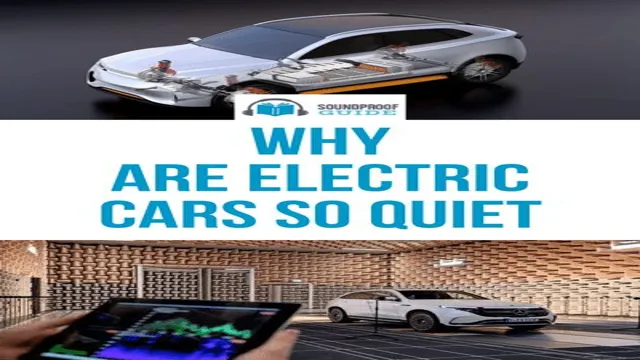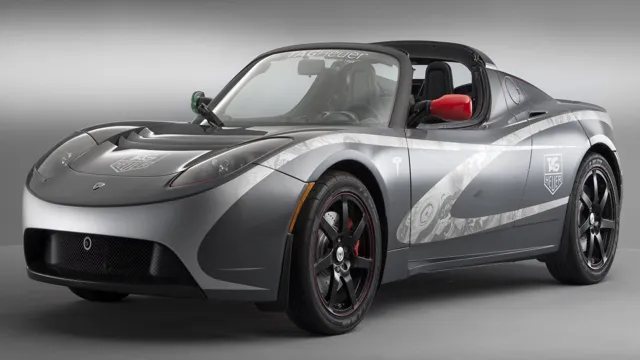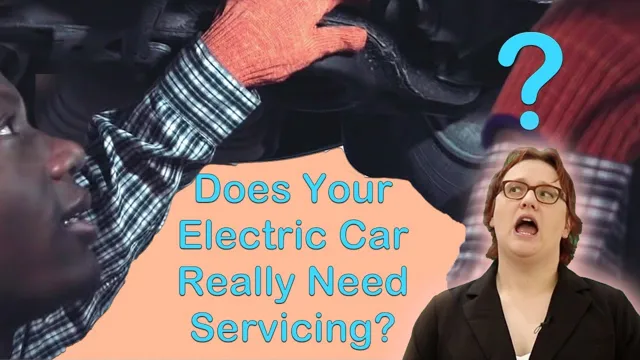Charge Up Your Knowledge: A Beginner’s Guide to Electric Cars
Electric cars are becoming increasingly popular and for some, it may seem daunting to consider buying one. However, fear not, as we have put together a beginner’s guide to electric cars to help you understand what they are and answer any questions you may have. From the benefits of owning an electric car to the differences between types of electric cars, we’ve got you covered.
First off, let’s start with the basics. Electric cars, as the name suggests, run on electricity instead of gasoline. This means that they are better for the environment and your wallet in the long run.
With electric cars being environmentally friendly, it’s a great way to help reduce your carbon footprint and have less of an impact on the planet. But what about the differences between various types of electric cars? Well, there are two main types of electric vehicles – battery electric vehicles and plug-in hybrid electric vehicles. Battery electric vehicles are powered solely by an electric motor making them eco-friendlier, while plug-in hybrid electric vehicles have a combination of an electric motor and a gasoline engine.
Furthermore, when it comes to charging, it’s essential to be aware of the charging options available – at home or at a public charging station. Overall, electric cars are the future, and this beginner’s guide is your first step towards understanding them. So, before you consider purchasing one, go through this guide and find out everything you need to know.
What are Electric Cars?
If you’re new to the world of electric cars, you may be wondering what they are and how they work. In short, an electric car is a vehicle that runs entirely on electricity, rather than gasoline or other forms of fuel. Instead of a traditional gas-powered engine, electric cars are powered by an electric motor that is fueled by a battery.
This battery is charged by plugging the car into a charging station or an outlet at home. One of the main benefits of electric cars is their environmental friendliness, as they produce significantly less emissions than traditional gas-powered vehicles. Additionally, electric cars are often lauded for their quiet and smooth ride, and the low cost of charging gives them a significant advantage in terms of affordability.
Overall, electric cars provide a promising shift towards more sustainable and efficient transportation for the future.
Definition and Types of Electric Cars
Electric cars are vehicles that use electric motors and batteries for energy instead of gasoline or diesel engines. These cars are powered by electricity stored in rechargeable batteries, making them environmentally friendly and cost-efficient. There are three types of electric cars: all-electric, plug-in hybrid, and hybrid.
All-electric cars, also known as battery electric vehicles, run solely on electricity and have no internal combustion engine. Plug-in hybrid cars have a gasoline engine and an electric motor, but they can be charged by an external power source. Finally, hybrid cars have both a gasoline engine and an electric motor, but they cannot be charged by an external power source.
Electric cars are an excellent alternative to traditional gasoline-fueled cars, as they are eco-friendly and have lower maintenance costs. It’s important to note that although electric cars are becoming more popular, there are still some limitations in terms of distance and charging infrastructure. However, with advancements in technology, electric cars are becoming more practical, convenient, and accessible for everyday use.

Benefits of Driving an Electric Car
Electric cars are vehicles that use electric motors and rechargeable batteries instead of gasoline-powered engines. They are eco-friendly and emit no harmful emissions into the atmosphere, making them an excellent choice for people who want to reduce their carbon footprint. Electric cars have been gaining popularity in recent years as they are cost-effective and provide a smooth driving experience.
With electric cars, you don’t need to worry about going to gas stations as you can charge your car easily at home or at public charging stations. They are also cheaper to maintain as they have fewer engine components, and the maintenance costs are significantly lower. The main benefit of driving an electric car is that they are environmentally friendly and sustainable.
By using electric cars, you can contribute to the fight against climate change and make a positive impact on the world. Overall, electric cars are a futuristic and innovative mode of transportation that can benefit both the environment and your wallet.
How do Electric Cars Work?
Are you curious about electric cars and how they work? Well, you’ve come to the right place! Let’s start with the basics. Instead of a traditional gasoline engine, electric cars are powered by an electric motor and a rechargeable battery pack. When you plug your car in to charge, the battery stores the electricity and then transfers it to the motor which drives the car.
One of the biggest benefits of electric cars is that they produce zero emissions, making them a much more environmentally friendly choice compared to traditional gasoline-powered cars. Another advantage is that they’re often incredibly efficient, getting more miles per gallon equivalent (MPGe) than gas cars. Overall, electric cars offer a promising future for transportation that’s clean, efficient, and sustainable.
So why not take the leap and consider making the switch to an electric car?
Electric Motors and Batteries
Electric cars are powered by electric motors and have a large battery that stores energy to run the vehicle. The electric motor is responsible for turning the wheels of the car, and the battery provides the power for the motor. When you press the accelerator pedal, the motor receives a signal to start spinning, and the battery sends electricity to the motor.
The faster you press the pedal, the more electricity gets sent to the motor, and the faster the car goes. Electric cars work differently than traditional gasoline-powered cars because they don’t have an engine with a complex series of mechanical parts. Instead, electric cars rely on a simple and efficient electric motor that converts electrical energy into mechanical energy.
This means that electric cars have fewer moving parts and require less maintenance than traditional cars. Additionally, electric cars produce fewer emissions than gasoline vehicles, making them more environmentally friendly. As electric cars become more popular, advancements in battery technology and electric motor design will continue to improve.
This will lead to longer driving ranges, faster charging times, and more affordable prices for electric cars. In the near future, we’ll likely see more electric cars on the roads, and they’ll become an increasingly commonplace sight.
Charging an Electric Car
Electric cars have become popular in recent years due to their environmentally conscious nature, but many still wonder how they work and how to charge them. Unlike traditional vehicles that run on gasoline, electric cars use a rechargeable battery to power an electric motor. When the car is in motion, the electric motor converts the energy from the battery into mechanical energy, propelling the vehicle forward.
As for charging, electric cars can be charged at home using a wall charger or at public charging stations. The charging time varies depending on the battery’s size, the power level of the charger, and the remaining charge in the battery. In general, it takes anywhere from a few hours to several hours to fully charge an electric car.
Drivers can also utilize fast-charging stations that can charge the battery to 80% capacity in just 30 minutes. Regardless of the method, it’s important to make sure the battery is charged before embarking on a journey to avoid running out of power.
Range and Driving Performance
When it comes to electric cars, understanding the range and driving performance is crucial. So, how do electric cars work, and what makes them different from traditional fuel vehicles? Electric cars are powered by a rechargeable battery, which uses electricity to store energy. As the car is driven, the battery discharges and powers the motor, allowing the car to move.
One of the main advantages of electric cars is that they produce zero emissions, making them better for the environment and improving air quality. However, the range and driving performance of electric cars can vary depending on the make and model, as well as driving conditions and battery capacity. It’s important to consider the range and charging time when selecting an electric car, as well as the driving experience and overall performance.
With the advancements in technology, electric cars are becoming more popular and accessible, making it easier than ever to make the switch to a more sustainable means of transportation.
Choosing an Electric Car
If you’re considering purchasing an electric car, it’s important to do your research to ensure you choose the right one for your needs. To begin with, consider your driving habits and how far you typically travel in one day. This will help determine the range you need from your electric car’s battery.
Next, consider the charging options available to you. If you have easy access to charging at home or work, a car with a shorter range may suit your needs. However, if you often take long trips, you may want to consider a car with a larger battery and the ability to fast-charge on the go.
It’s also important to consider your budget and any available incentives or rebates for purchasing an electric car. Be sure to test drive a few different options to find the one that feels comfortable and meets your needs. With options ranging from compact cars to SUVs, there’s an electric car out there for every driver.
Factors to Consider before Buying an Electric Car
When it comes to investing in an electric car, there are several factors to consider before making a purchase. One of the primary things to think about is the driving range of the vehicle. Electric cars can typically travel between 100 to 300 miles on a single charge, so it’s essential to decide how far you’ll need to go on a regular basis.
You’ll also want to consider the charging infrastructure in your area, as well as the cost of installation if you need to have a charger installed at your home. Additionally, it’s important to take into account the size and style of the vehicle, as well as its performance and features. Do you need a compact car or an SUV? Are you looking for a sporty model, or something more family-friendly? By carefully weighing these factors, you can choose the electric car that’s best suited to your unique needs and preferences.
Popular Models of Electric Cars
When it comes to choosing an electric car, there are plenty of popular models available on the market. The Tesla Model S and Model 3 are two of the most well-known electric cars, known for their sleek design and exceptional performance. The Nissan Leaf is another popular electric car, offering a more affordable option with a longer range than many other electric cars on the market.
The Chevy Bolt is also a top contender, with over 200 miles of electric range on a single charge. For those seeking a luxury electric car, the Audi e-tron and Jaguar I-PACE are both stylish and powerful options. Of course, it is important to consider factors such as price, range, and charging availability when choosing an electric car that fits your lifestyle and needs.
Maintaining and Repairing Electric Cars
As electric cars become more prevalent in the automotive industry, it’s important to know how to maintain and repair them. Unlike traditional gasoline-powered vehicles, electric cars have different components and systems that require specialized attention. A beginners guide to electric cars should include regular maintenance such as checking and replacing the battery, monitoring tire pressure, and keeping the charging system in good condition.
When it comes to repairs, it’s best to take your electric car to a certified mechanic who has experience with electric vehicles. It’s important to remember that electric cars have fewer moving parts, which means they require less maintenance overall. However, when a repair is needed, it’s important to address it promptly to avoid further damage to the vehicle.
By taking care of your electric car properly, you can ensure that it will provide you with reliable and efficient transportation for years to come.
Scheduling Maintenance
Maintaining and repairing electric cars can seem daunting for those who are accustomed to traditional gasoline vehicles. However, scheduling regular maintenance is crucial to keeping your electric car running smoothly and efficiently. It is recommended to schedule maintenance every 10,000-20,000 miles, depending on the model and manufacturer.
Some common maintenance tasks include checking and replacing the battery, inspecting the brakes and tires, and ensuring all electrical components are functioning correctly. It’s also important to address any issues immediately, as ignoring them can lead to more significant problems down the road. Think of maintaining an electric car like taking care of a plant – regular watering and pruning will help it thrive, while neglecting it can lead to withering and potential long-term damage.
With proper maintenance, an electric car can provide a reliable and cost-effective means of transportation for years to come.
Common Issues and Repairs
Maintaining and repairing electric cars is not as complicated as some people might think. One of the most common issues with electric cars is the battery. While they have longer lives compared to traditional vehicle batteries, they do eventually need to be replaced.
Another issue is with the charging system. Over time, charging ports or cables may become worn out and need to be repaired or replaced. Additionally, electric cars have a lot of electronics and software that need to be maintained.
It’s important to keep up with software updates and to have the electrical systems checked regularly to prevent any issues. To avoid some of these common issues, it’s essential to follow the manufacturer’s maintenance schedule and fully understand your electric car’s capabilities. Remember to take your electric car to a qualified mechanic who is trained and experienced in working on electric vehicles.
Conclusion
So, there you have it – a beginner’s guide to electric cars, a modern marvel that is revolutionizing the way we think about transportation. From eco-consciousness to practicality, there are many reasons to choose electric cars over their petrol-guzzling counterparts. And as technology continues to improve, the future looks bright for electric cars – we can’t wait to see what’s next.
So why not take one for a spin and see for yourself? Who knows, you might just join the ranks of the electric vehicle enthusiasts – plus, imagine the look on your friends’ faces when you tell them you’re powering your car with electricity!
FAQs
What is an electric car and how does it differ from a gas-powered car?
An electric car is a vehicle that runs on electricity stored in rechargeable batteries, while a gas-powered car runs on gasoline or diesel fuel. Electric cars are more efficient and emit less pollution compared to gas-powered cars.
How far can an electric car go on a single charge?
The range of an electric car depends on factors such as the size of the battery, driving conditions, and weather. Most modern electric cars can travel between 100 and over 300 miles on a single charge.
How long does it take to charge an electric car?
The time it takes to charge an electric car varies based on the size of the battery and the charging method used. A typical Level 2 charger can fully charge an electric car in 4-8 hours, while a Level 3 DC fast charger can do it in 30 minutes to an hour.
How much does it cost to maintain an electric car?
Electric cars have fewer moving parts and require less maintenance compared to gas-powered cars. The maintenance costs of an electric car are usually lower due to fewer engine components, longer-lasting brakes, and less need for oil changes. However, the cost of replacing a battery pack can be high.




